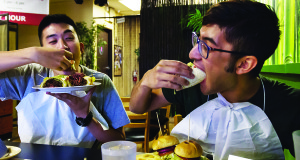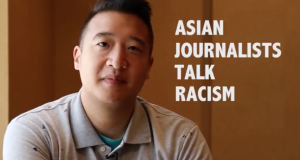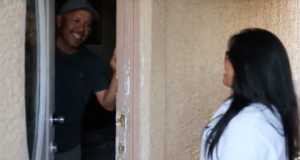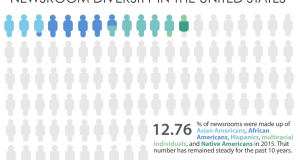Living in California demanded a deep pocket from Douglas Lee, a 40-year-old Korean American health care professional living in Los Angeles. Then he and his wife, also in the medical industry, hit their breaking point.
They started looking for another place to live.
“Like many Californians, my wife and I knew we wanted to get out,” Lee said. “It just didn’t seem worth the struggle to remain in the state anymore.”
They were quick to cross off cities. Seattle had too much rain – so did Portland. Arizona was the opposite. They considered Texas, but “We’re not white,” Lee explained. They settled on Las Vegas.
“Vegas is not a town that cares about the color of your skin. That was important to us,” he said.
The Lees are one of the estimated two thousand Korean Americans who moved to Nevada in recent years. The state had the 10th largest increase in the Korean American population between 2010 and 2014, according to AAPI data – a 17 percent increase overall. Nevada was outpaced only by its neighbor, Idaho.
It’s part of a greater migration of Asian Americans into the state. In Las Vegas, home to the 2016 AAJA conference, Asian Americans are also the fastest-growing racial group.
The number of Asian Americans went up by 130 percent between 2000 and 2010, according to a report by AADC, and Korean Americans rank as the fourth-largest ethnicity in the city overall. Filipino Americans are the largest Asian group in Nevada, followed by Chinese and Japanese Americans.
Some have attributed Las Vegas’ surging Asian population to “crushing home prices, poor schools, jammed freeways, and persistent crime” in Washington and California, where they had traditionally settled in the past.
Business growth has reflected the demographic shift, with an emerging Koreatown along a three-mile stretch of Asian businesses known locally as Chinatown.
“Vegas has everything Koreans want: large, cheap housing, Korean food and a culture of small businesses,” Lee said.
The Fair Market Rent (FMR) for a two-bedroom apartment in Clark County is about $500 less than in Los Angeles County, although California’s Korean population also continues to grow. However, Lee eventually relocated to Albuquerque because he said that Vegas public schools “are terrible compared to a city like Irvine,” but it’s a move that he regrets. Aside from quality schools, he feels Vegas is a better fit.
“The cost of living was low, there was year-round sunshine, and we would hardly ever have to travel to see people, since everyone visits Vegas,” he said.
The U.S. Census reported that Korean Americans had a median household income of $58,573 in 2014. Although it’s a few thousand above the overall U.S. median income of $51,939, Korean Americans are likely seeking a more manageable cost of living in Southern states.
A map from the National Low Income Housing Coalition illustrates the hourly wage needed to afford a two-bedroom apartment in various U.S. states. All of the top 10 states with the largest growth in Korean Americans also are on the more affordable side, with the exception of the District of Columbia and Delaware. Those two more expensive states likely have a growth in Korean Americans because of their proximity to New Jersey, where there are booming Korean ethnoburbs.
Top 10 states for Korean American population growth, 2010 – 2014
Several southern states also had an influx of Korean Americans, and this trend is also generally true of all Asian Americans in recent years. According to Pew Research, most Asian Americans moving to the south are “transplants from liberal states on the coasts” who are seeking “economic opportunity and a cheaper cost of living” than in places like New York or Los Angeles.
I Think Koreans Run Las Vegas, That's Literally All I've Seen
— OneFamilyOneMe (@UnNoticedTalent) July 16, 2015
When Lee breaks outside of the strip in Vegas, he sees Korean-owned restaurants lining the streets. One restaurant, he says, “feels like it was imported straight from Koreatown LA.”
“It’s such a familiar feeling to be there, and it is really a symbolic business for me that ties Koreans in Los Angeles and Las Vegas together,” he said. “ … Now, Koreans in LA look like the struggling ones while Las Vegas Koreans seem okay.”
| Rank | State | Increase |
|---|---|---|
| 1 | West Virginia | 46.09% |
| 2 | Delaware | 45.27% |
| 3 | Alabama | 33.92% |
| 4 | South Carolina | 30.37% |
| 5 | Louisiana | 27.4% |
 VOICES Publishing from the AAJA National Convention
VOICES Publishing from the AAJA National Convention









